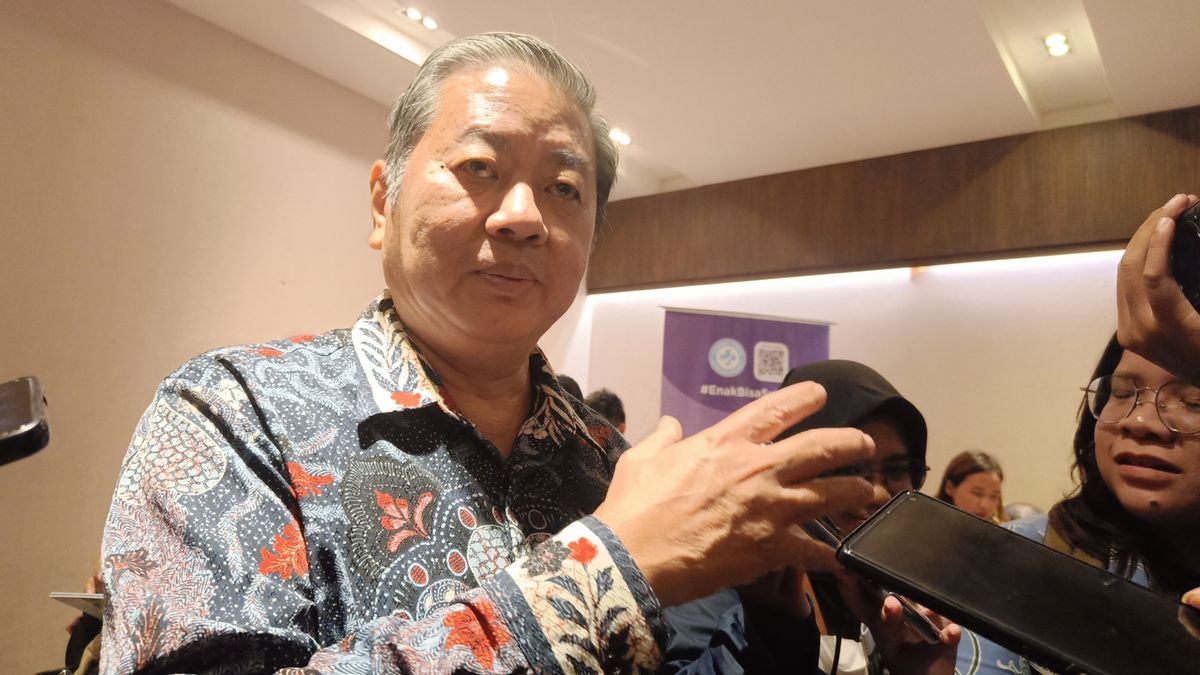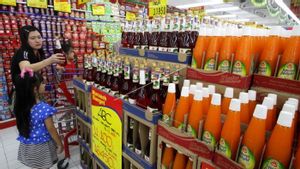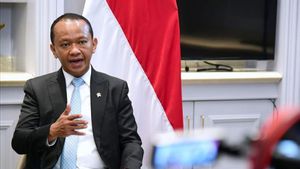JAKARTA - Chairman of the Association of Indonesian Food and Beverage Entrepreneurs (Gapmmi) Adhi S Lukman said the application of packaged sweetened beverage excise (MBDK) would have an impact on an increase in product prices of up to 30 percent.
This seems to dismiss the statement by the Director General of Agro Industry at the Ministry of Industry (Kemenperin) Putu Juli Ardika who said that the application of sweetened beverage excise of Rp. 1,771/liter will have the potential to raise product prices by around 6-15 percent.
Adhi also denied the calculation. According to him, the increase experienced would be higher than that calculation.
"More than 6-15 percent) if it's IDR 1,700 per liter. It means that 350 milliliter drinks are usually the most (meaning in the market), meaning (tax) IDR 1,700 divided by 3, yes, around IDR 600 per bottle," said Adhi when met after the Asia Indonesia Food Ingruents press conference at Artotel Gelora Senayan, Jakarta, Monday, August 19.
He said, a tax of Rp600 per bottle is a rough calculation for the increase in prices from factories, not the price that will be charged to consumers. Meanwhile, the price increase when it reaches consumers can swell.
According to him, the price increase in factories could reach 20 percent, but when it reaches consumers, the end of the increase can be at 30 percent.
For example, the price of products per bottle at the factory of Rp. 3,000 when it reaches consumers will be Rp. 5,000. This amount has not been added to VAT of around Rp. 600.
"When (tax) is Rp600 from Rp3,000. This means that the price will increase by 20 percent. That is an extraordinary increase. If it reaches the final consumer (the increase) can be up to 30 percent, very expensive," said Adhi.
"Are consumers able to bear this? I'm not sure consumers will be able to bear this, the condition of which is not rising (price) only the market is a bit sluggish," he continued.
Adhi said, in the calculation of the food and beverage industry, including processed foods of 1 percent, the price increase will affect the decline in revenue by around 1.7 percent.
"So, the price increase of 1 percent will reduce 1.7 percent of sales. It means that if sales go up 20 percent, how much can sales go down? That's, right, extraordinary," he said.
SEE ALSO:
Given the impact of the MBDK excise which will worsen the situation of the mamin industry, Adhi said, as a representative of entrepreneurs who are included in stakeholders have never been involved in the stage of determining the amount of excise.
He admitted that he only found out the amount of excise duty on sweetened drinks from the RAPBN.
He hopes that the government can immediately provide clear reasons regarding the background of issuing this MBDK excise.
"I want to know what this excise function is. To overcome PTM (Uninfectious Infection) or for state income, these are two different things," he concluded.
The English, Chinese, Japanese, Arabic, and French versions are automatically generated by the AI. So there may still be inaccuracies in translating, please always see Indonesian as our main language. (system supported by DigitalSiber.id)















